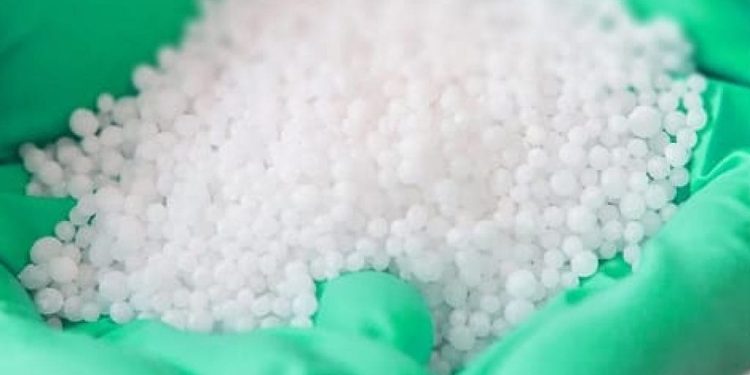The raw material for the product will be liquid calcium nitrate, which is produced in the production of complex NPK fertilizers.
The Novgorod enterprise “Akron” launched a new production of calcium nitrate. This was announced on Wednesday by the governor of the Novgorod region Andrey Nikitin in his Telegram channel.
“Today I took part in the launch of a new production of calcium nitrate with a capacity of 100,000 tons per year at the Novgorod enterprise Akron,” the report says.
According to the head of the region, the production capacity will be 100 thousand tons per year, and investments in the project will be $22 million, or more than 1.3 billion rubles. In addition, thanks to the launch of a new production facility, an additional 126 new jobs will be created for residents of the region.
As the press service of the regional government told TASS, liquid calcium nitrate, produced at the existing production of complex NPK fertilizers, will become the raw material for obtaining a new product. It is planned to produce various grades for both agriculture and industry. Grades for agriculture are intended for both open ground and greenhouse farms.
As part of the project, a unit for cleaning and preparing liquid calcium nitrate from impurities, an evaporation plant, granulation, classification, and cooling of the finished product were put into operation, and a flow-transport system with high-capacity packaging machines was put into operation. About 100 units of the main technological equipment, over 1,100 tons of metal structures and metal products, more than 5,000 m of pipelines have been installed at the new production facility. 18 contractors worked at the construction site.
A warehouse is equipped for storing fertilizer. Products will be shipped by rail and road in bags, stretch hoods, big bags.
Calcium nitrate or calcium nitrate is a fertilizer that is widely used in agriculture. Available in the form of a crystalline salt and soluble in water. Its use stimulates the development of the root system of plants, vegetative growth, increases the resistance of plants to environmental stress factors, bacterial diseases, which contributes to an increase in yield by 10-15%.







